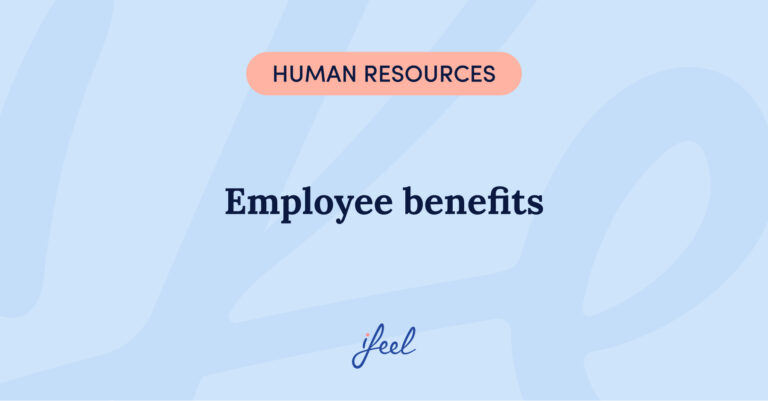Customer loyalty in insurance companies is crucial to ensure business growth and sustainability.
In a highly competitive market, where acquiring new customers is significantly more costly than retaining existing ones, insurers must adopt innovative strategies to maintain and strengthen customer loyalty.
In fact, according to statistics, it costs approximately five times as much to attract a new customer as it does to retain an existing one due to the marketing, advertising, and promotional expenses required to attract new customers. These costs underline the importance of retaining customers for future renewals, i.e. the importance of loyalty.
In this context, the question commonly arises: What is the best way to retain customers, and what should insurers do to increase customer loyalty? Currently, multiple formulas combine technology with the best loyalty techniques to increase the profitability of insurance companies through customer loyalty.
What is customer loyalty in insurance companies?
The process of customer loyalty in insurance companies consists of implementing different strategies that the company carries out to retain customers who are already part of the company and to get them to renew their policies.
In this way, customer loyalty in insurance companies implies retaining them and converting them into active promoters of the company. For insurers, especially those offering business health insurance, it is vital to maintain high customer satisfaction and trust.
Benefits of customer loyalty in insurance companies
Retaining customers is a fundamental part of business strategy that fosters business growth. Trust in the insurer translates into customers renewing their policies and recommending services to other companies. This word-of-mouth effect is crucial in the insurance industry.
Of course, building customer loyalty in insurance is not an easy task, as it requires listening to customers’ needs, differentiating oneself from the competition, and providing a personalised solution that allows for customer satisfaction. However, when this process is carried out correctly, it can bring multiple benefits to the company, such as:
1. Cost savings
Retaining a customer is significantly more cost-effective than acquiring a new one. The investment in advertising, push calls, and offers for new customers is minimised when it comes to retaining an existing customer.
In fact, research has shown that retaining a customer can increase profits by 25% to 95%, as loyal customers tend to spend more and recommend the company to others. In addition, existing customers are 60% to 70% more likely to buy again, compared to 5% to 20% for potential new customers.
Additionally, loyal customers tend to recommend services to others, generating new conversions at no additional cost. In the insurance industry, closing a sale can take months, so retaining existing customers is an efficient strategy in terms of human resources and time.
2. Increases brand trust
When customers perceive an insurer as superior to the competition, they are less likely to switch to the competition.
Therefore, customer loyalty in insurance companies strengthens customer relationships, making them less susceptible to offers from other companies. Having all insurance with one insurer also makes managing customers easier, increasing their loyalty.

3. Facilitates the sale of other services
Cross-selling is an effective strategy for increasing each customer’s value. Offering complementary or additional insurance that protects against risks not initially contemplated can improve customer satisfaction and increase revenues.
In this sense, knowing your customers well allows you to offer relevant products without oversaturating them, building healthy and long-lasting business relationships.
4. Customers become brand ambassadors
Satisfied and loyal customers tend to become brand ambassadors, recommending the services to their close circle. This enhances the insurer’s reputation and attracts new potential customers.
A good reputation and long-term customer relationships position the insurer advantageously in the marketplace, allowing it to launch personalised and effective marketing strategies.
How do we build customer loyalty in insurance companies?
Customer loyalty in insurance companies requires a combination of innovative strategies and a customer-centric approach. For this reason, developing and implementing a loyalty strategy to retain customers is an invaluable opportunity to study customer needs while positioning yourself as a strong company capable of delivering real value to customers.
Techniques that can be implemented include:
1. Differentiate yourself from the competition:
It is necessary to establish clear differences concerning competitors in the sector to attract customers’ attention. This can be done in different ways:
- Specialisation: Offer specialised products and services that stand out in the market.
- Agile and reliable service: Ensure that processes are efficient and that customers can rely on the quality of service.
- Personalisation: Tailor offers and services to each customer’s specific needs. This can be done by analysing customer buying habits to design effective marketing and loyalty campaigns and using the database to reactivate inactive customers through personalised promotions.
- Visibility and credibility: Maintain an active and reliable presence in digital media where services are promoted, creating a community.
2. Reward customers:
The main objective of this type of technique is to let the customer know that their purchase is valued and, therefore, rewarded through different benefits. This can be done in various ways:
- Loyalty programmes: Implement programmes that reward customers’ purchasing behaviour.
- Personalised rewards: Offer rewards that have intrinsic value to consumers, ensuring that the rewards are relevant and appreciated.
- Listen and respond: Listen actively to customers and respond efficiently to their needs.
- Flexibility and communication: Be flexible and communicate transparently and honestly to build a relationship of trust.
3. Leverage Information Gathered:
Information is one of the keys to the success of any customer loyalty strategy in insurance companies. In this sense, taking advantage of the information collected over time is the best way to personalise attention:
- Database: Using information from databases to better understand customers and target marketing strategies.
- Customer satisfaction: Keeping informed regularly about customer satisfaction to adjust and improve the services offered.

4. Effective communication strategies
Effective communication is fundamental to maintaining a strong relationship with clients. Insurers should create strategies to ensure that clients are well-informed about the services and benefits available to them.
- Transparency: Transparency in communications builds trust. It is crucial to inform clients clearly and promptly about any policy changes, additional benefits, and updates.
- Ongoing education: Offering webinars, workshops and educational materials on the importance of physical and mental health and how to use the services available can improve the use and appreciation of the insurance offered.
5. Integrating technology platforms
Insurance technology plays a key role in improving the customer experience. Implementing advanced technology not only optimises insurers’ internal processes but also improves their interaction with customers, creating a stronger and longer-lasting relationship.
- Personalisation and efficiency: Technology platforms allow insurers to customise their offerings and services to the specific needs of each customer, creating a more relevant and satisfying experience for the end user.
- Process automation: Automation allows insurers to handle large volumes of data efficiently, reduce errors and free up time to focus on strategic tasks. This improves accuracy and speed in policy and claims management.
- Customer experience: It is crucial to use technology to deliver a seamless customer experience. From chatbots that provide instant answers to mobile apps that allow customers to manage their policies, technology facilitates a smoother and more satisfying interaction.
6. Digital well-being programmes
Offering mental health solutions within health insurance is a strategy that can differentiate an insurer in the competitive marketplace, and improve customer loyalty at insurers. These programmes, using advanced technology, offer ongoing and accessible support to employees of insured companies.
- Mental health platforms: Companies such as ifeel offer mental health solutions for insurers that enable employees to access mental health services conveniently and confidentially. This integration not only improves employee well-being but also increases satisfaction with the health insurance provided by the company.
- Triage and Ongoing Support: A triage system, such as the one offered by ifeel, allows employees’ mental health needs to be quickly identified and appropriate support to be provided. This ensures they receive the help they need without delay, improving their overall well-being and perception of insurance.
- Access and convenience: Digital well-being programmes are accessible, so employees can receive support where and when they need it. This is especially valuable in times of high demand or crisis, as it ensures that resources are always available.
In this regard, Virginia Grenón Lobato, Global Head of HR Operations at Cabify, an ifeel partner company, noted:
“Ifeel’s proposal offered us the possibility of dealing with these issues with flexibility, utmost confidentiality, a very powerful professional team behind us, and the feeling of security that they would be there wherever we needed them.”
Employees who feel supported in their mental well-being are more productive and loyal to their employers. This, in turn, strengthens the relationship between the company and the insurer, increasing retention rates.
This is reflected in the opinion of Sabrina Kruse, Head of HR for EMEA and the Diversity, Inclusion and Engagement Group at SCOR, an ifeel partner company:
“Our partnership with ifeel has catalysed a positive shift in discussing mental well-being at SCOR. Since implementing ifeel’s solution, we’ve seen an increase in open conversations about mental health within our organization. This change is particularly evident in countries where discussions on mental health were still in their early development, helping to remove taboos and normalize dialogue on the subject, thus fostering a more supportive and empathetic work environment”.

Technology at the service of insurers
At ifeel, we know that the key to customer loyalty in insurance companies lies in offering personalised, accessible and high added-value solutions, using technology as a strategic ally to improve customer well-being and satisfaction.
It is, therefore, timely for insurers to rely on experts to ensure that their product remains at the cutting edge. To assist in this process, ifeel has developed a mental well-being solution for insurers to help insurers increase accessibility and reduce mental health claim costs.
This service, thanks to our innovative triage system, allows insurers to receive personalised, data-driven advice on the most effective measures to detect mental health problems in their policyholders, accurately understand users’ needs, and respond appropriately to their claims.
This approach helps insurers provide continuous and adaptive support, improving customer satisfaction and loyalty. In addition, this solution helps reduce the frequency and severity of mental health-related claims, optimising risk management.
Clients such as SCOR, AXA, and Femi Connecting Healthcare already rely on our services, which improve the quality of life of their policyholders and increase their organisations’ operational efficiency.
We hope you found this article on customer loyalty in insurance interesting. If you would like to learn more about our mental well-being solution for insurers, simply request it, and we will contact your team as soon as possible.











